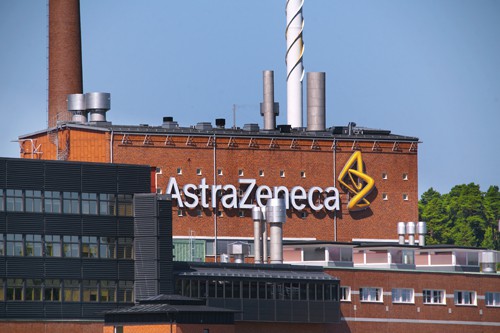
AstraZeneca’s lung cancer therapy Iressa been approved in the US as a first-line therapy for patients with a specific gene mutation, setting the scene for its return to the US market after an absence of four years.
Specifically, the FDA has cleared Iressa (gefitinib) for initial therapy of patients with metastatic non-small cell lung cancer (NSCLC) whose tumours have epidermal growth factor receptor (EGFR) exon 19 deletions or exon 21 L858R substitution mutations.
Iressa was first approved in the US in 2003, but saw its use restricted two years later after it failed to show an improvement on overall survival in a placebo-controlled trial. AZ eventually took it off the US market in 2011, before the FDA revoked its accelerated approval status a year later.
The new approval has been made possible thanks to the development of a companion diagnostic test – developed by Qiagen – that can be used to select patients most likely to respond to treatment with the drug, based on a tumour tissue sample.
Qiagen launched the diagnostic in January, saying at the time that it was the first liquid biopsy companion diagnostic to reach the US market for lung cancer. The two companies have also collaborated on a blood test for EGFR mutations that was approved in Europe last year.
This time, FDA approval is based on data from the phase IV IFUM1 study, which tested Iressa as a first-line treatment for Caucasian patients with locally advanced or metastatic EGFR mutation-positive NSCLC, and backed up by the IPASS2 trial in an Asian patient population.
In IFUM1, Iressa treatment was associated with an overall response rate of 70%, with around half of people treated with the drug seeing tumour shrinkage that lasted around six months.
Iressa is already approved in more than 90 countries for the treatment of NSCLC with EGFR mutations but has been held back by exclusion from the US market and competition from other first-generation EGFR inhibitors such as Roche/OSI’s Tarceva (erlotinib) as well as newer drugs such as Boehringer Ingelheim’s Giotrif (afatinib). AZ’s drug brought in $623m last year, a 4% decrease on 2013.
In addition to the renewed push into the US, AZ is also hoping to further revitalise the franchise through combination studies of Iressa with its anti-PD-L1 antibody durvalumab (MEDI4736).
The drug will be launched in the US within the next few days at a price in line with other first-generation EGFR inhibitors, according to AZ.




